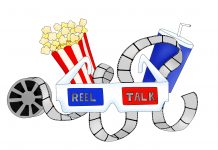One of the biggest trends in cinema of the last decade or so has been young-adult novel adaptations. Some of them become enormous box-office leading franchises — like “Harry Potter,” “The Hunger Games” and the relatively new “Divergent” series — while most other attempts are difficult to recall. Because of the hope for a possible franchise, one could argue that YA adaptations are one of the biggest risks for Hollywood studios to take.
The newest example, released this weekend, is “The Maze Runner,” the beginning of a trilogy of post-apocalyptic films about teenagers who are made subjects of a horrifying experiment. As far as YA adaptations go, “The Maze Runner” is pretty standard fare, but it does barely enough to keep from feeling entirely derivative and to drive viewer interest in the upcoming sequel.
One of the biggest questions is how “The Maze Runner” franchise differs from every other YA franchise currently on the market. Most films of this ilk take place in either a sci-fi, post-apocalyptic or fantastical setting, and in this respect “The Maze Runner” is no different. Now, it may seem like I’m nitpicking at a trivial detail, but this sort of setting plays really well into another trope of the genre. Most plots of YA adaptations feature older teenage characters who, in the beginning, lie under the iron will of an oppressive adult regime. YA stories generally showcase a hyper-stylized reality in which these younger protagonists, who are more relatable to the target audience, rise against these forces. This first chapter of “The Maze Runner” may not explicitly present conflict between both sides, but it is implied and will inevitably occur, like in all other films of its kind. There is no denying that, on the surface, “The Maze Runner” is just another derivative attempt at a YA franchise that big Hollywood studios can peddle to the masses. But underneath the film’s glossy skin lies a more intriguing piece of flesh.
If anything in “The Maze Runner” can be considered refreshing, it is undoubtedly its consistently dark tone. Other YA franchises may have a friendlier feel to them, and in the end that is good business because it will not alienate some of their target audience. Given this tendency, a film like “The Maze Runner” is a more-than-welcome approach to the YA formula. It deals with death and hopelessness in its “Lord of the Flies”-esque society of able-bodied teenage boys (and a solitary girl) in ways that similar films might avoid. It familiarizes its audience with, at times, a moody, bleak attitude and makes death expected. Its tone is appropriately dark — and never unnecessarily so. The film’s mission to make its audience familiar with the idea that death is expected in this world may take the sting out of each big plot point, but it is still a welcome alternative to the more easily digestible cinema for younger audiences.
The film has a fairly solid cast, but the writing could have been improved. The ending is intriguing enough to enhance viewer interest in a sequel, but the overall storytelling and pacing could have been better. The film may do some things a little differently than most other YA franchises, but it’s still sometimes a pure example of typical Hollywood spectacle cinema and can seem a little too familiar to fully stand out from the YA crowd. These “yeah, but” statements perfectly express how I feel about “The Maze Runner.” It is one of those films that provokes the reaction, “It wasn’t good, it wasn’t bad, it’s just there.”
In the context of the franchise, who knows how this film will stack up to its sequels? Personally, I am a little skeptical of how the sequels will be handled. Granted, I may not have read the books, but I am afraid the successive films will not reflect this film’s edgier appearance — as edgy as a PG-13 film of popular cinema can possibly be, anyway. And if you are a Negative Nancy like me, or even a regular filmgoer who can easily spot out the business trends of studios, it’s obvious that the last chapter of the trilogy will be unnecessarily split into two parts.
Rating: 2 stars out of 4





































